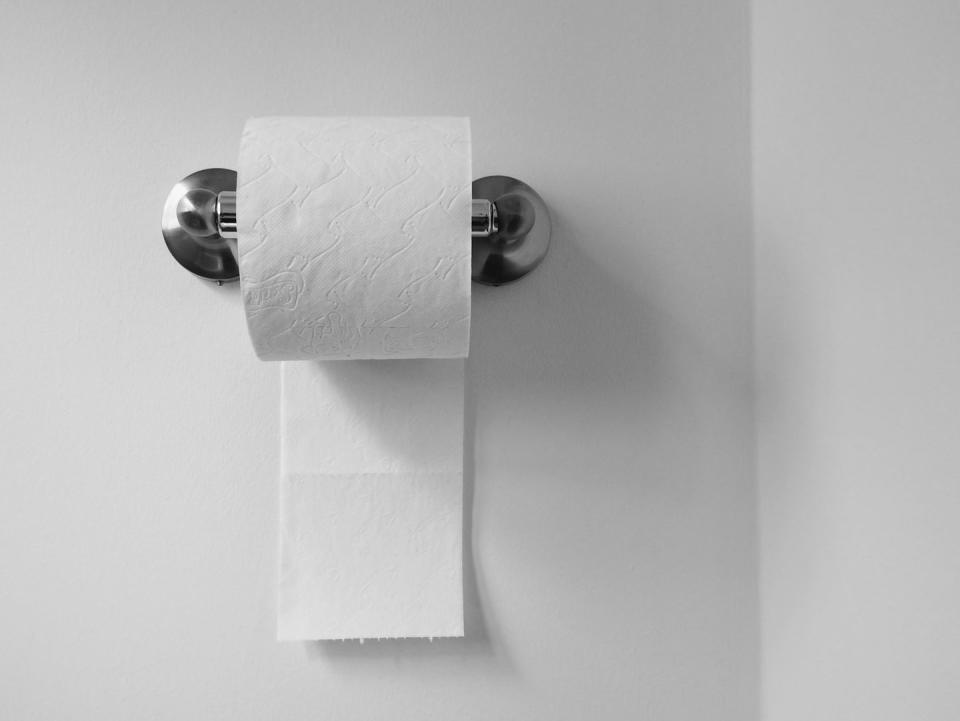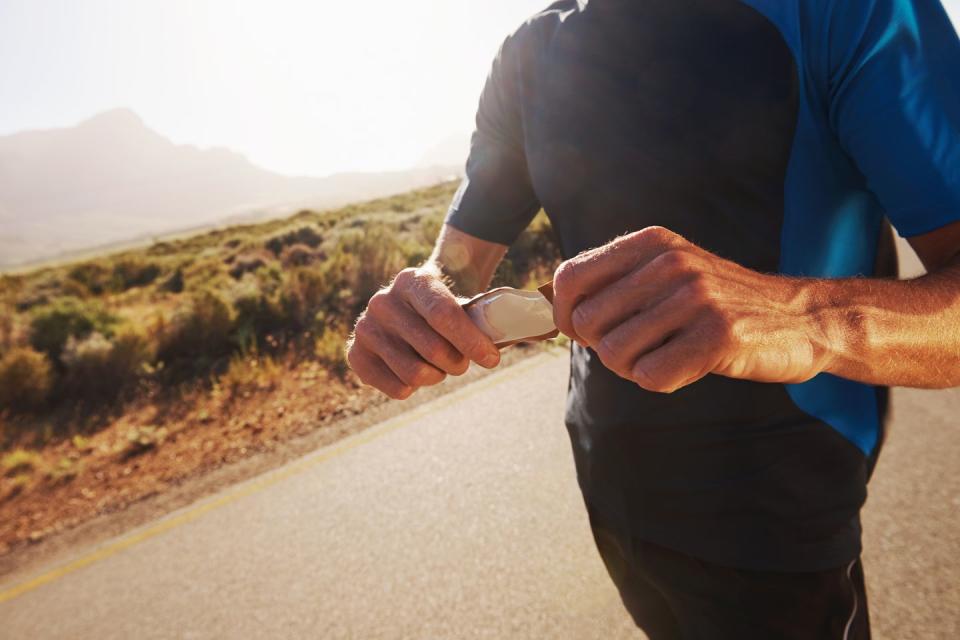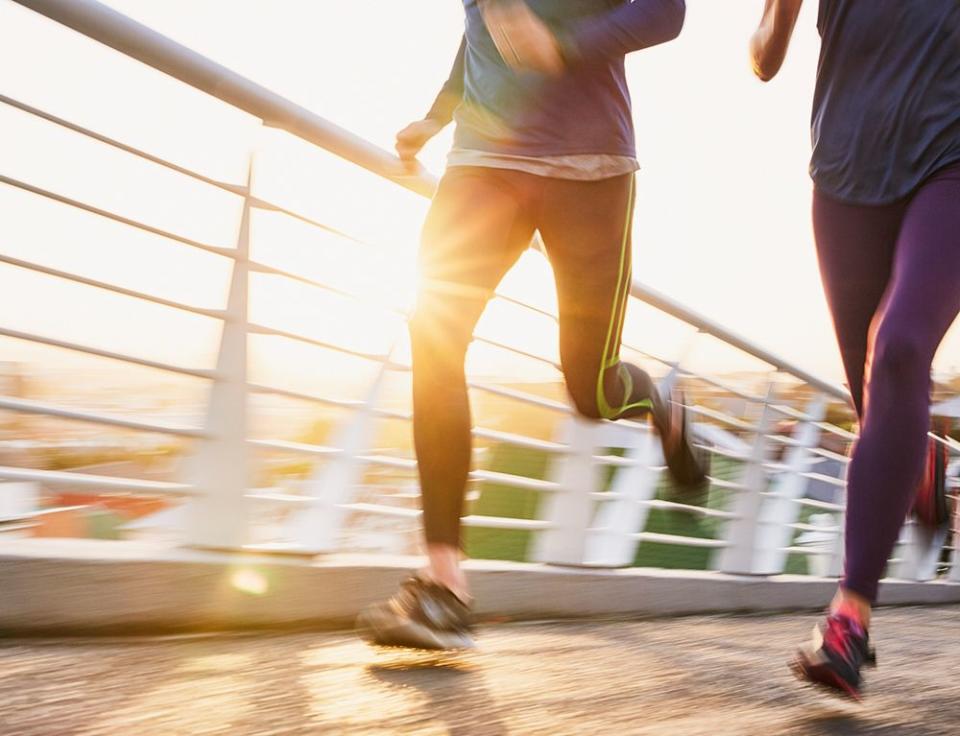Race to the loo? No thanks. How to avoid toilet breaks during a race

There's nothing worse than being on track for a new PB when you have to stop mid-race for a toilet break. Best case scenario you just need to quickly relieve your bladder but at the other end of the scale you may be cramping up with major gut issues.
But don't worry, there are solutions to your stomach woes! We chatted with top gastroenterologists and champion athletes to identify nine strategies for making it through your next race without these abysmal experiences happening to you.
1. Add food and bathroom columns to your running log

Keeping a log of what you eat and how often you visit the bathroom will help to identify your gastric triggers.
'We are all different in how we react to specific foods,' says Hardeep Singh, M.D., a gastroenterologist at St. Joseph Hospital in California. 'The best thing to do is to track what foods you eat and how that correlates with your bowel movements in the weeks leading up to a race.'
This can help you identify foods that may cause you to run for the bushes during those training runs. Common triggers include lactose, sugar substitutes, wheat, gluten, soy, caffeine and eggs, Singh says.
2. Improve your running form

It takes the average runner 1,000-plus strides to cover a single mile, according to the American College of Sports Medicine. That equals a whole lot of intestinal jostling, literally shaking the crap right out of you, says Singh.
An easy way to decrease the trauma to your innards - and also improve your running economy - is to minimise your vertical oscillation, or how much your body bounces up and down with each stride. Many run tech options track vertical oscillation to help you reduce it.
On your next run, imagine that a ceiling is one inch above your head; try not to hit it. Also, incorporating eccentric leg exercises into your strength-training routine - simply slow the 'down' portion of exercises like squats or lunges - can help you to naturally minimise bounce. That’s because eccentric exercises strengthen your muscles while they lengthen - exactly what happens in your hips and calves every time your foot strikes the ground. So, when you increase your eccentric strength, you reduce how much your body drops (and bounces back up) with each foot strike.
3. Taper your fat and fibre intake

One to two days before your race, reducing your intake of both nutrients can help to make sure that you don’t 1) have any more food than absolutely necessary hanging around in your GI tract when you cross the start line and 2) beeline anything you consume during the race all of the way through your intestines before you cross the finish line, says John Pandolfino, M.D., chief of gastroenterology and hepatology at Northwestern Memorial Hospital in Chicago.
That’s because dietary fat slows digestion and is hard to break down in the gut. And, since blood flow is diverted from the gut and toward the muscles during exercise like running, you don’t want to make any midrace digestion more difficult than it needs to be. What’s more, while fibre is good during training to keep your bathroom habits regular, when combined with prerace jitters and race-length workouts, it can contribute to diarrhoea.
In the days immediately before your race, cut out any rich or fatty foods - such as creamy sauces, fried foods and potentially whole fat dairy - and switch from complex to simple carbs (yay for white bread!). Absolutely no cruciferous vegetables like broccoli and cauliflower the day before your run if it often brings trouble, he says.
Ultra runner and 50km World Champion Carla Molinaro always has a low fibre diet leading up to race day.
'A lot of athletes do this. You want to aim for 15g of fibre per day, two days before your race. It's not fun because you are cutting out fruit and vegetables which you need in the long term, but it actually works very well if you only do it before a race. I tend to eat oats for breakfast, chicken and rice, and then Rice Crispies as a snack.'
It is also best to avoid spicy foods which can stimulate muscle contractions in the large intestine, particularly several hours to a day after consumption.
4. Tweak your caffeine routine

Many runners have a love-hate relationship with caffeine. While the fatigue-fighting compound can definitely improve exercise performance (why many running gels actually contain caffeine), it can also send your bowels into high gear, says Pandolfino.
FYI: a single pouch of GU Energy Gel contains up to 40 mg of caffeine, versus an eight-ounce cup of coffee, which contains 95 mg. Consumed every 30 to 60 minutes throughout a race like a half or full marathon, that adds up to a lot of caffeine.
Still, while the amount of caffeine each stomach can tolerate is unique, the gels might be a little easier on your stomach than pre-race shots of espresso. That’s because research also shows that various compounds in coffee (other than caffeine) increase the body’s levels of gastrin and cholecystokinin, two hormones that speed up how fast things move through the gut. Any coffee is usually best consumed at least an hour before start time, he says. That way, you have a good chance of completely emptying your system before you even set foot on pavement.
5. Get your nerves in check

Butterflies in your stomach aren’t as pretty as they sound.
'Anxiety that goes beyond supporting performance to the point of hindering performance can also stimulate muscle contractions in the gut leading to bowel movements including diarrhea,' explains Dr Clarke of the University of Connecticut School of Medicine where he is board-certified in Internal Medicine and Gastroenterology.
'The brain and gut are directly wired to each other, and any stressor can contribute to a change in bowel habits,' says Singh. The best way to keep pre-race jitters from going straight to your gut is to eliminate any anxiety that you don’t find motivating or energising. After all, while a certain amount of adrenaline can be helpful during a race, too much can make you feel like (and go for a) Number 2.
Everything from taking slow, deep breaths to laying out everything you need on race morning the night (or even two) before can help eliminate excessive stress. (Check out more tips for pre-race stress relief.)
6. Schedule a pre-race toilet trip

'If you can get on a regular schedule, ideally you should try to time it so that you have a good healthy bowel movement a few hours prior to race time,' Singh says. That way, you’ll have the least amount of food in your system during the race. Running causes your body to divert blood from your GI tract to your muscles, which, if you have much of anything in your system, can contribute to diarrhoea.
7. Slow down your fuelling

'In general, eating and drinking slowly during a race is helpful at preventing gastrointestinal distress,' Singh says. Sipping and nibbling slowly allows your gut to absorb nutrients efficiently with as little work as possible and minimises any stomach grumbling. What’s more, quick eating or gulping generally involves swallowing some air, which can lead to gas, cramps and, eventually, a bathroom break.
That said, it’s important to avoid under-fuelling. When you reduce how much you eat or drink during every fuelling session, make sure that you increase feeding frequency proportionally.
8. Drink electroltyes

Although drinking fluid may seem counterintuitive to preventing toilet visits staying hydrated with the right type of drink is key.
'Stay hydrated by drinking plenty of water and electrolyte-rich sports drinks before, during, and after your run. Dehydration can lead to insufficient circulation to the gut during running which can contribute to digestive issues like diarrhea,' says Dr Clarke.
9. Use the toilet and catch-up

Going for a toilet stop mid race might not be as time consuming as you think. So don't stress if you do divert for a quick loo break because the rest from running may enable you to catch up. Molinaro experienced this in a recent race and found she didn't lose any time.
'As soon as the race started I really needed a wee. I was stressing myself out. There was a portaloo on the way and I just stopped. It took me five seconds and then I caught back up with the people I was running with really quickly. I didn't actually lose any time and I felt so much more comfortable.'
She says one tactic is to research where the toilets will be on a race and then build this into your race plan, rather than stressing about not wanting to stop.
You Might Also Like


